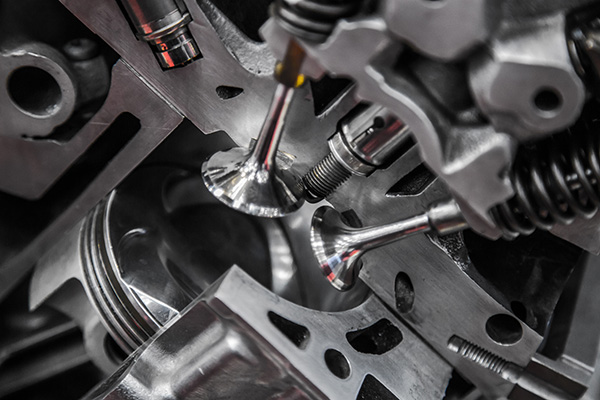
Your car's fuel system is crucial for maintaining optimal engine performance. When something goes wrong, it can lead to a host of problems, from reduced fuel efficiency to engine misfires. But what are the common issues that can plague your fuel system? Let's dive into the most frequent problems and how they can impact your vehicle.
The Fuel System
Before we get into the specifics, it's essential to understand what the fuel system does. The primary function of the fuel system is to store and supply fuel to the engine. The key components include the fuel tank, fuel pump, fuel filter, fuel injectors, and fuel lines. When everything is working correctly, the engine receives the precise amount of fuel needed for efficient combustion. However, when any part of the system fails, it can severely impact performance.
1. Clogged Fuel Injectors
How It Happens
Fuel injectors can become clogged due to the buildup of carbon deposits, dirt, or other contaminants. This blockage can disrupt the flow of fuel into the engine.
Signs and Symptoms
Symptoms of clogged fuel injectors include rough idling, poor acceleration, engine misfires, and decreased fuel efficiency. You might also notice that your car has trouble starting.
How to Fix It
Using fuel injector cleaning additives can help dissolve minor blockages. For more severe clogs, professional cleaning or even replacement might be necessary. Regular maintenance and using high-quality fuel can prevent this issue.
2. Faulty Fuel Pump
How It Happens
The fuel pump sends fuel from the tank to the engine. Over time, it can wear out or fail due to contaminants, overheating, or electrical issues.
Signs and Symptoms
A failing fuel pump often causes sputtering at high speeds, difficulty starting, stalling, and a noticeable drop in fuel efficiency. The engine might also make whining noises, and if it fails completely, it could leave you stranded on the side of the road.
How to Fix It
If the fuel pump is failing, it typically needs to be replaced. Ensuring the fuel tank is clean and contaminant-free can help prolong the pump's lifespan.
3. Dirty or Clogged Fuel Filter
How It Happens
The fuel filter removes contaminants from the fuel before they reach the engine. Over time, it becomes clogged with dirt and debris.
Signs and Symptoms
Symptoms of a clogged fuel filter include poor engine performance, stalling, hard starts, and reduced fuel efficiency. You might also notice a rough idle.
How to Fix It
The best solution is to replace the fuel filter. To prevent issues, it's recommended to change the fuel filter every 20,000 to 30,000 miles.
4. Contaminated Fuel
How It Happens
Fuel contamination can occur when water, dirt, or other impurities enter the fuel tank. This can happen at the gas station and from low-quality fuel.
Signs and Symptoms
Contaminated fuel can cause engine sputtering, stalling, hesitation during acceleration, and decreased performance. You might also notice a check engine light.
How to Fix It
Draining and cleaning the fuel tank is necessary to remove contaminants. Using high-quality fuel and keeping the fuel cap sealed properly can help prevent contamination.
5. Faulty Fuel Pressure Regulator
How It Happens
The fuel pressure regulator controls the pressure of the fuel going to the engine. If it malfunctions, it can cause an imbalance in the fuel-air mixture.
Signs and Symptoms
Symptoms include black smoke from the exhaust, poor fuel economy, engine misfires, and reduced performance. The engine might also run too rich or too lean.
How to Fix It
Replacing the faulty fuel pressure regulator is the solution. Regular inspections can help catch this issue early.
Preventative Measures for a Healthy Fuel System
Maintaining a healthy fuel system requires regular care and attention. Here are some tips to keep your system running smoothly:
- Regular Maintenance:Follow your vehicle's maintenance schedule and perform regular checks on the fuel system components.
- Use High-Quality Fuel: Opt for high-quality fuel to minimize the risk of contamination and deposits.
- Additives: Use fuel system cleaners and additives periodically to keep the injectors and other components clean.
- Avoid Running Low on Fuel: Keeping your fuel tank at least a quarter full can prevent the fuel pump from picking up debris from the bottom of the tank.
Keep your car running at its best by addressing fuel system problems early. Visit Yates Automotive for comprehensive fuel system maintenance and repairs. Call us today to set up your service!